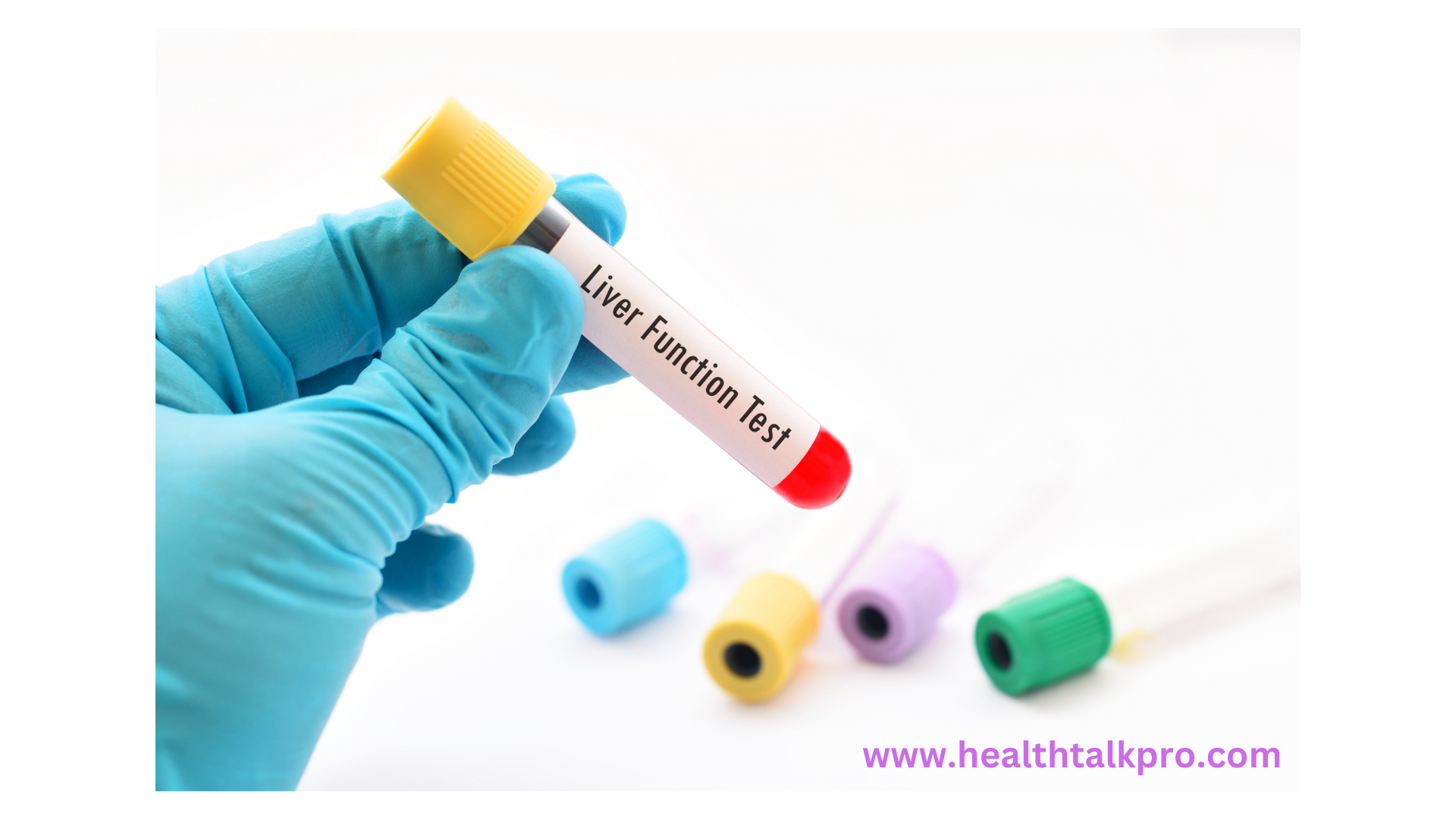What are liver function tests?

Liver function tests (also known as a liver panel) are blood tests that measure various substances produced by your liver. These tests help assess how well your liver is working and whether it might be damaged.
Some of the key substances measured in liver function tests include:
- Albumin: A protein produced by the liver.
- Total protein: The total amount of protein in your blood, including albumin and globulins, both made by your liver.
- ALP (alkaline phosphatase), ALT (alanine transaminase), AST (aspartate aminotransferase), and GGT (gamma-glutamyl transferase): Enzymes produced mainly by the liver. These enzymes help speed up chemical reactions in your body.
- Bilirubin: A waste product from the breakdown of old red blood cells. Your liver helps remove most of it from your body.
- Lactate dehydrogenase (LDH): An enzyme found throughout your body, but especially in the liver.
- Prothrombin time (PT): A measure of how long it takes for your blood to clot. Prothrombin is a protein made in your liver that’s essential for clotting.
These tests help evaluate liver health and can indicate liver damage, but they can’t pinpoint specific diseases. If results are abnormal, further testing is usually required.
Other names for liver function tests: liver panel, liver function panel, liver profile, hepatic function panel, LFT.
What are liver function tests used for?
Liver function tests are most commonly used to:
- Detect liver disease or damage that might be causing symptoms.
- Assess the severity of liver disease after a diagnosis.
- Monitor liver disease and check how well treatment is working.
- Evaluate the effects of certain medications on the liver.
Why do I need liver function testing?
Many liver function tests are part of a routine blood test called a comprehensive metabolic panel (CMP), which is often done during checkups to screen for liver disease.
You might need liver function tests if you’re experiencing symptoms of liver problems, including:
- Nausea or vomiting
- Loss of appetite
- Fatigue or weakness
- Jaundice (yellowing of the skin or eyes)
- Abdominal pain or swelling
- Swelling in your ankles or legs
- Dark urine or pale stools
- Frequent itching
You may also need testing if you are at higher risk for liver damage, such as if you:
- Have a family history of liver disease
- Struggle with alcohol use disorder
- Are obese
- Have diabetes
- Take medications that could affect your liver
- Have or have been exposed to hepatitis (liver inflammation caused by infection or injury)
If you already have liver disease, these tests may be needed to monitor your condition and check how well treatment is working.
What happens during a liver function test?
A healthcare professional will take a blood sample from a vein in your arm using a small needle. The procedure is quick and usually takes less than five minutes. You might feel a brief sting when the needle is inserted and removed.
Do I need to prepare for the test?
Your healthcare provider will give you specific instructions for preparing. You may need to fast for 10-12 hours before the test. It’s important to tell your provider about any medications you’re taking since some can affect test results. However, don’t stop taking any medicines unless instructed by your provider.
Are there any risks with the test?
The risk of complications from a blood test is minimal. You may experience slight pain or bruising at the needle site, but these symptoms usually go away quickly.
What do the results mean?
Interpreting liver function test results can be complex, so it’s best to discuss your results with your provider. Abnormal results can point to:
- Liver inflammation, which could indicate hepatitis.
- Hepatitis caused by alcohol use or infections.
- Impaired liver function or liver weakness.
- Problems with your bile ducts, which carry bile made by the liver.
- Liver damage from medications.
However, abnormal results don’t always mean liver problems. Other conditions, such as bone disease, can cause elevated levels of some substances like ALP. Your provider will also consider your symptoms, medical history, and any medications you’re taking when interpreting the results.
If you’ve been sick recently, abnormal results might be temporary. In such cases, your provider may repeat the tests later to see if levels return to normal.